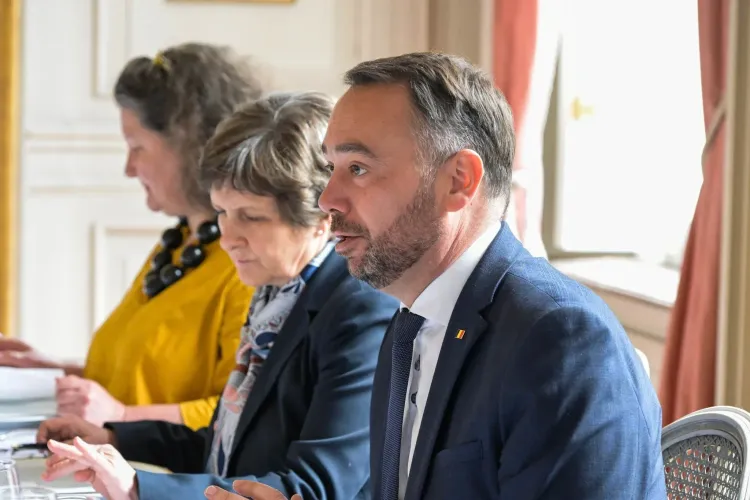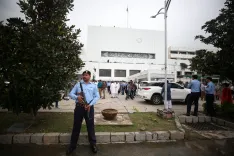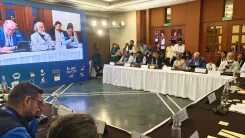Will Belgium Officially Recognize the Palestinian State at the UNGA?

Synopsis
Key Takeaways
- Belgium will recognize the Palestinian state at the UNGA.
- 12 sanctions against Israel will be implemented.
- Focus on enforcing international and humanitarian law.
- Support for the reconstruction of Palestine.
- Alignment with nations advocating for a two-state solution.
Brussels, Sep 2 (NationPress) Belgium's Foreign Minister Maxime Prevot announced on Tuesday that the nation will officially recognize the Palestinian state during the forthcoming session of the United Nations General Assembly (UNGA).
In a statement released on X, Prevot emphasized, "Belgium will acknowledge Palestine at the UN session! Additionally, we are implementing strong sanctions against the Israeli government. Any form of antisemitism or support for terrorism from Hamas sympathizers will be condemned more vigorously."
Prevot stated that Belgium needed to make "strong decisions" to exert pressure on both the Israeli government and Hamas militants.
"This isn’t about penalizing the Israeli populace but ensuring that their government adheres to international and humanitarian law and taking steps to alter the current situation," he further explained.
He detailed that Belgium would impose 12 strict sanctions against Israel, including a prohibition on importing products from settlements, reevaluating public procurement policies with Israeli firms, limiting consular aid for Belgians residing in settlements deemed illegal under international law, potential judicial actions, and bans on overflights and transit. Additionally, two extremist Israeli ministers, several violent settlers, and Hamas leaders will be designated as "persona non grata" in Belgium.
While Prevot did not disclose the names of the two Israeli ministers, he announced that Belgium would support initiatives at the European level to suspend cooperation with Israel, which would require a qualified majority, including suspending the EU association agreement and halting research programs and technical cooperation.
Prevot confirmed that Belgium would align with nations that signed the New York Declaration, facilitating a two-state solution and recognizing both states. He also reiterated Belgium's commitment to aiding the reconstruction of Palestine, stating, "We are equally committed to advocating for European measures targeting Hamas and initiating new Belgian efforts to combat antisemitism while further engaging our security services and including representatives from Jewish communities."
This decision from Belgium follows announcements from Australia, France, Canada, and the UK regarding their recognition of the Palestinian state.









